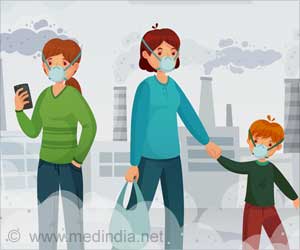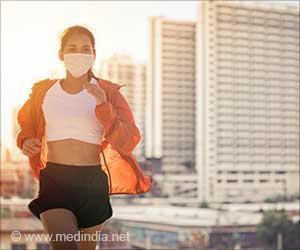How to manage your health during Diwali? Limit exposure to harmful chemicals and pollutants, especially for people suffering from respiratory illnesses.
- The use of fireworks during Diwali has a detrimental effect on air quality and health
- Patients with respiratory illnesses such as asthma, and chronic respiratory diseases are more prone to this condition
- Therefore, certain safety measures that reduce the exposure to pollutants may help to combat this scenario
This causes a steep rise in air pollution and worsens the air quality index (AQI), taking the value to 400 to 500 and even more in certain dense areas in India.
Respiratory Problems
Smoke is a common by-product of a firecracker. These suspended particles in the air, when inhaled, can lead to several respiratory problems. In some cases, this floating particulate matter may also contain heavy metal oxides and salts that can get deposited in the lungs and cause irreversible damage (1✔ ✔Trusted SourcePotential impact of fireworks on respiratory health
Go to source).
To deal with the pollution during Diwali, wear face masks to limit the inhalation of noxious fumes. Those who are already suffering from respiratory concerns should get themselves examined after Diwali to be on the safe side.
The Delhi government is preparing to spray bio-decomposer on the city farms to curb stubble burning. The state governments of Punjab and Delhi are also working on finalizing a monetary incentive for farmers who do not burn their paddy residue after harvesting.
People should limit or cease certain outdoor activities like running, jogging, cycling, gym, and other sports during early morning hours.
Avoid sending your kids who are less than seven years of age to school if the AQI (Air Quality Index) is higher than 100. Schools must also suspend all outdoor activities and only allow kids to move out in the afternoon hours.
Use wet mopping with warm water and add a pinch of baking soda to it at home. Do not sweep/mop in the morning hours because it will re-suspend all settled particles in the air.
Before starting the car, open the windows to facilitate recirculation between indoor air and outdoor air for two minutes. This will help in the dilution of CO (Carbon monoxide) concentrations.
CO is more dangerous and can lead to fatal consequences. Also, run your car AC for some time in indoor circulation. Every car has AC filters that reduce PM2.5 substantially. PM2.5 particles are particles that have a diameter of less than 2.5 micrometer.
People need to have proper nutrition with the consumption of Vitamin C-rich fruits like amla, and citrus fruits like orange, sweet lime etc. Doing deep breathing exercises and pranayama will also help improve lung strength during this season.
Ventilating your house between 3 p.m. and 5 p.m. every day is also a good idea as this is the best time during the day when PM2.5 levels are lowest on a bright sunny day.
Digestive Problems
While bursting crackers, a small residue of particulate matter is often left behind on your fingers. Since bursting crackers and enjoying sweetmeats go hand in hand on Diwali, there is a high chance of ingesting these chemicals. Take care to wash your hands thoroughly with soap before you touch any food item (1✔ ✔Trusted SourcePotential impact of fireworks on respiratory health
Go to source).
Hearing Problems
Excessive noise that goes over the permissible decibel level leads to noise pollution. This can be in the form of noise emitted by firecrackers, loudspeakers, etc. To avoid noise-related problems, use earplugs and keep your doors and windows closed.Skin Problems
Many people suffer from skin irritations during Diwali. This is largely due to pollutants in the air and chemical residue left on the skin. To keep skin problems at bay, drink lots of water, use moisturizer, avoid fried food, cover your face with a cloth while burning crackers, and wash your face afterwards thoroughly (2✔ ✔Trusted SourceWhat can individuals do to reduce personal health risks from air pollution?
Go to source).
All these precautionary actions are especially necessary for people suffering from asthma and other respiratory illnesses. Air pollutants do not clear away immediately and are present in the air for many days after Diwali as well.
Opting for more environmentally friendly techniques using newer technology other than the conventional methods is a further possible solution. Never the less, an eco-friendly Diwali is the best way to reduce pollution and its hazards.
References:
- Potential impact of fireworks on respiratory health - (https://www.ncbi.nlm.nih.gov/pmc/articles/PMC4220320/)
- What can individuals do to reduce personal health risks from air pollution? - (https://www.ncbi.nlm.nih.gov/pmc/articles/PMC4311076/)
Source-Medindia
















